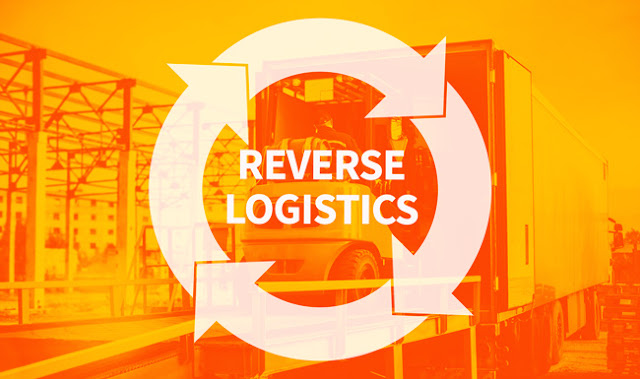⏩Request to Download Sample PDF of Research Report
In today's world, sustainability is becoming increasingly important for businesses to consider. One area that is often overlooked is reverse logistics. Reverse logistics is the process of managing the return of goods from the end-user back to the manufacturer or retailer. This process can include anything from returns, repairs, refurbishments, and recycling.
According to Allied Market Research, The global reverse
logistics market valued $635.6 billion in 2020 and is projected to reach $958.3
billion in 2028, registering a CAGR of 5.6%.
Embracing reverse logistics can benefit businesses in
several ways. Firstly, it can help reduce waste and minimize environmental
impact. By refurbishing or recycling products, businesses can reduce their
carbon footprint and promote sustainable practices.
Secondly, reverse logistics can help companies save costs.
By optimizing the reverse logistics process, businesses can recover some value
from returned products, reducing the cost of returns and minimizing waste. In
addition, by using advanced analytics and data management, companies can
optimize their reverse logistics processes to improve efficiency and reduce
costs.
Furthermore, reverse logistics can improve customer
satisfaction and loyalty. By providing a seamless and efficient returns
process, companies can enhance their reputation and build trust with customers.
To successfully implement a reverse logistics strategy,
businesses need to invest in the right technology and processes. This includes
implementing an effective returns management system, utilizing advanced
analytics and data management tools, and partnering with reliable and efficient
logistics providers.
In addition, companies need to educate their employees and
customers on the importance of reverse logistics and sustainability. This can
include training employees on how to handle and process returns, and providing
clear and transparent return policies to customers.
In conclusion, reverse logistics is a crucial aspect of
sustainable business practices. By embracing reverse logistics, businesses can
reduce waste, save costs, and improve customer satisfaction. With the global
reverse logistics market set to grow significantly in the coming years,
companies that invest in this area will be well-positioned to succeed in the
future.
Reverse logistics is a crucial component of the supply chain
industry that involves the management of the movement of products from the
customer back to the manufacturer or retailer. This process helps to optimize
the value of returned products and can include activities such as product
recall, repair, refurbishment, recycling, and disposal. The reverse logistics
industry has been growing in recent years, driven by increased demand for
sustainable and circular business practices, as well as regulations related to
environmental protection and waste reduction.
⏩Request to Download Sample PDF of Research Report
Here is a list of the top 10 companies in the reverse
logistics industry, along with their country of origin:
- FedEx
(USA)
- UPS
(USA)
- DHL
Supply Chain (Germany)
- CEVA
Logistics (Switzerland)
- DB
Schenker (Germany)
- Kuehne
+ Nagel (Switzerland)
- XPO
Logistics (USA)
- Yusen
Logistics (Japan)
- GEODIS
(France)
- C.H.
Robinson (USA)
These companies offer a wide range of reverse logistics
services, including product return management, repair and refurbishment,
product recycling, and waste management. They have also been investing in new
technologies to improve their capabilities, such as automation, robotics, and
artificial intelligence.
In addition, many of these companies have been expanding
their global footprint through strategic acquisitions and partnerships. For
example, UPS recently acquired the reverse logistics company, Loop, to expand
its capabilities in reusable packaging and closed-loop logistics. Similarly,
DHL Supply Chain has partnered with the reverse logistics start-up, ReBOUND, to
provide a more sustainable and transparent returns management solution.
As the demand for sustainable and circular business
practices continues to grow, the reverse logistics industry is poised for
further expansion. With their extensive experience and innovative solutions,
the top 10 companies in this industry are well-positioned to capitalize on this
trend and drive further growth and innovation in the years to come.




![[𝟐𝟎𝟐𝟐 𝐞𝐁𝐨𝐨𝐤] 𝐂𝐨𝐦𝐩𝐥𝐞𝐭𝐞 𝐆𝐮𝐢𝐝𝐞 𝐎𝐧 𝐅𝐢𝐟𝐭𝐡-𝐏𝐚𝐫𝐭𝐲 𝐋𝐨𝐠𝐢𝐬𝐭𝐢𝐜𝐬 (𝟓𝐏𝐋) 𝐁𝐮𝐬𝐢𝐧𝐞𝐬𝐬 𝐄𝐱𝐩𝐥𝐚𝐢𝐧𝐞𝐝, 𝐎𝐩𝐩𝐨𝐫𝐭𝐮𝐧𝐢𝐭𝐢𝐞𝐬, 𝐀𝐜𝐭𝐢𝐨𝐧𝐚𝐛𝐥𝐞 𝐒𝐭𝐫𝐚𝐭𝐞𝐠𝐲 & 𝐈𝐧𝐬𝐢𝐠𝐡𝐭𝐬 𝐨𝐟 𝐓𝐨𝐩 𝐂𝐨𝐦𝐩𝐚𝐧𝐢𝐞𝐬: 𝐃𝐞𝐮𝐭𝐬𝐜𝐡𝐞 𝐏𝐨𝐬𝐭 𝐀𝐆, 𝐔𝐧𝐢𝐭𝐞𝐝 𝐏𝐚𝐫𝐜𝐞𝐥 𝐒𝐞𝐫𝐯𝐢𝐜𝐞 𝐈𝐧𝐜., 𝐅𝐞𝐝𝐄𝐱, 𝐃𝐇𝐋](https://blogger.googleusercontent.com/img/a/AVvXsEgDGbVtfEj4Y3Lir7CD2YyBYrsfbSIEmp2GZHDGlO5bM2bGx2rooZ39-FA4gQuprZPYXmefJ5Qwlc_PnNoGGy4ogMfklatr1iGBfButbw6p0hzL91DkAEXgRTdKcnTQWpuFEla6jtTS_hPfKMkxj83Mju_zpXrYWMCOtoIcHtmiW1gAxdOzLuyRA9Ht=w72-h72-p-k-no-nu)



0 Comments